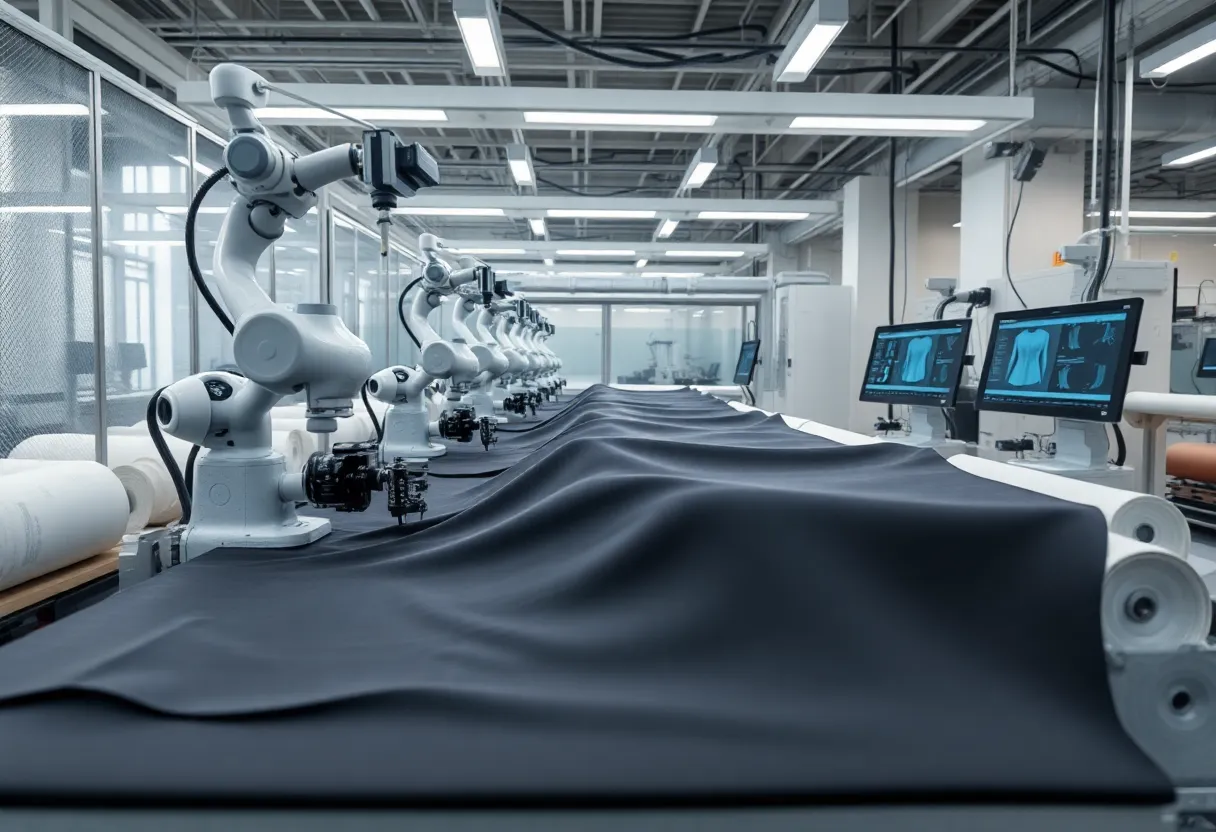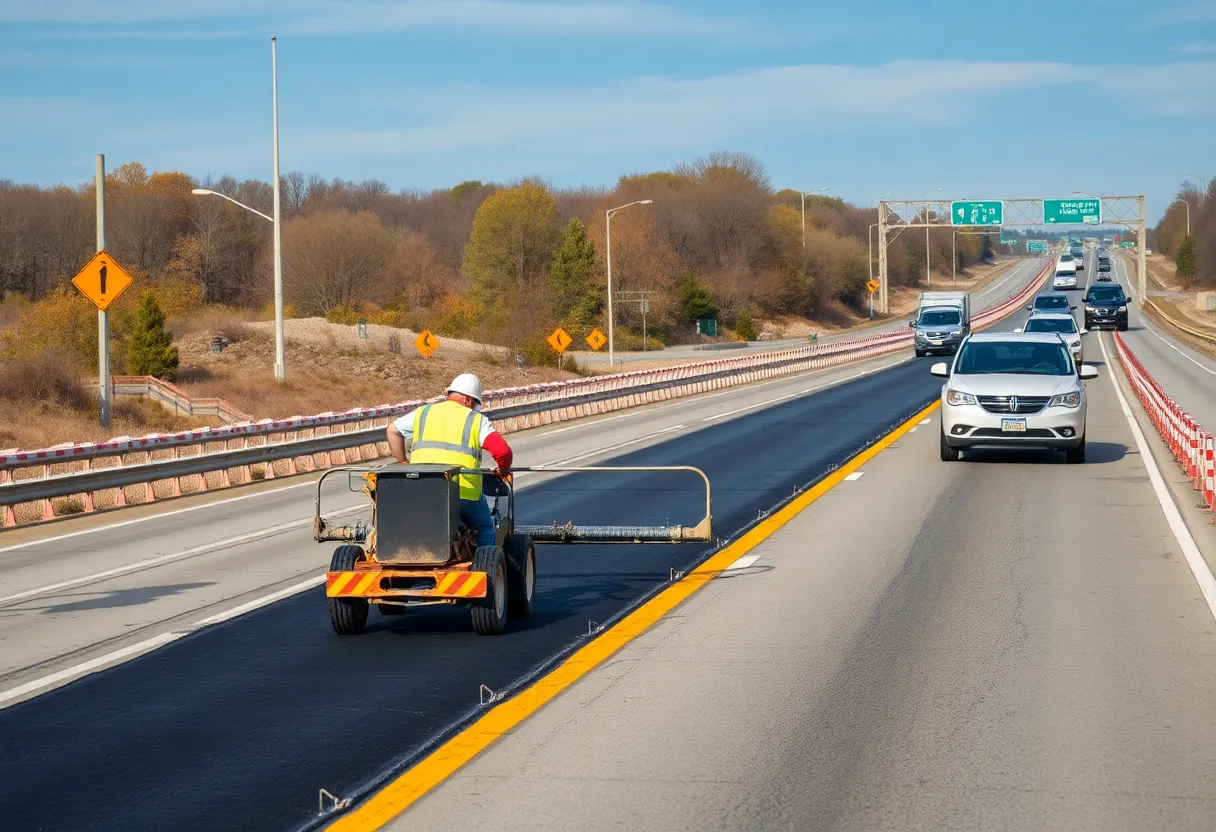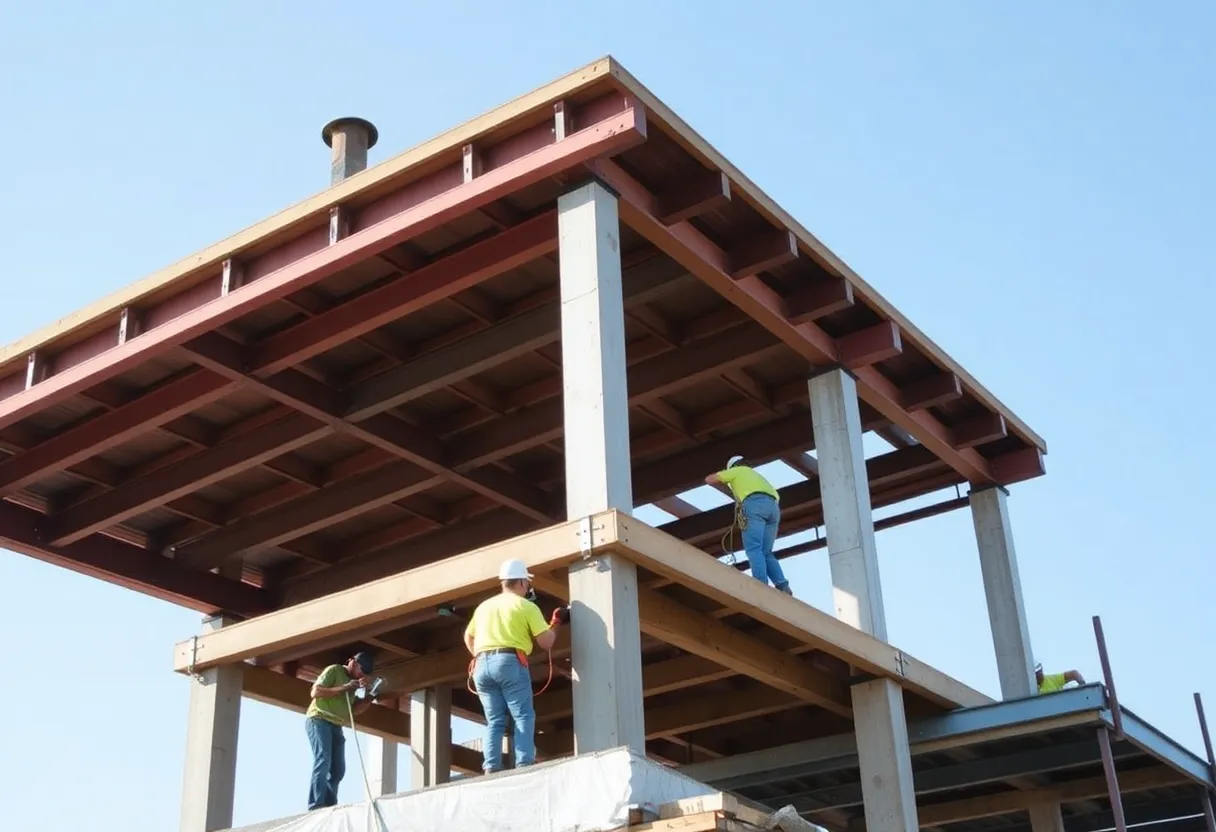Newark, California, September 15, 2025
News Summary
CreateMe Technologies unveiled a hardware and materials system pairing a modular robotic assembly cell with a digitally applied microadhesive to enable on‑demand bonded garment production in the United States. The platform is positioned as an end‑to‑end, software‑defined garment construction solution that replaces traditional sewing, speeds production, and reduces waste. Initial commercial output targets women’s intimates with expansion to everyday apparel like T‑shirts. The Newark facility houses multiple machines with high throughput claims, low minimums, short turnaround times, and a licensing and machine‑operation business model backed by a broad patent portfolio.
CreateMe launches robotic apparel platform and microadhesive to enable on‑demand bonded garment production in the U.S.
CreateMe Technologies has unveiled a new hardware and materials system designed to make bonded apparel in the United States on demand. The company announced the platform in a press release on Sept. 11, 2025, with additional industry coverage following on Sept. 15, 2025. The system pairs a modular robotic assembly cell called MeRA with a proprietary microadhesive branded Pixel to replace traditional sewing, accelerate production and support localized, small‑batch manufacture.
What was announced
The combined system — described by the company as an end‑to‑end, software‑defined garment construction platform — is intended to produce bonded apparel with high precision, lower lead times and reduced waste. CreateMe identified its first commercial garment made with the system as a line of women’s intimates, characterized as the industry’s first fully autonomous bonded intimates product. The company also said it will expand to everyday apparel, beginning with T‑shirts and then adding more styles.
Facility, machines and production scale
CreateMe operates from a 35,000‑square‑foot facility in Newark, California. According to reporting on the company, one machine is currently operational, a second is under construction and the facility has room for up to eight machines in total. Each machine is claimed to be capable of producing about 1 million T‑shirts annually. The platform has reportedly been tested on roughly 100 fabrics.
Pilot programs and commercial roll‑out
Two pilot programs are in place, each planned to produce 50,000 units. The company says the platform can handle small minimums and color quantities — around 100 units or less — and deliver turnarounds in approximately one to three weeks, supporting nearshoring, special sizes and short silhouette runs.
Core technology and claims
MeRA stands for Modular‑engineering Robotic Assembly and is described as a completely modular and flexible system. Pixel is presented as a microadhesive applied digitally to form bonds and seams. The company positions the combination as an alternative to stitching and permanent adhesives, with Pixel bonds described as producing seams under 1 mm wide and allowing bonded materials to be separated cleanly to support recycling.
Key performance and business claims associated with the platform include:
- 20× faster production speed versus traditional methods
- 2× the precision of manual sewing
- Throughput up to 250 garments per hour within a compact footprint
- Cost competitiveness with offshore manufacturing, including claimed duty‑landed parity for T‑shirts at roughly $6 each in example economics
- Lead times cut by up to 70%, turning speed‑to‑market from months into days
- Reduced CO2 emissions, lower textile waste and less overproduction through on‑demand runs
System design and software
The platform integrates robotics, digital adhesive application, modular hardware and proprietary AI/ML software to automate garment build steps. The design is promoted as scalable, location‑agnostic and resilient by design, supporting a range of garment categories from performance wear to lifestyle basics. The workflow relies on CAD files that require small adjustments for automated processing.
Operational approach
The machine flow is described as keeping fabric flat during most processing stages — likened operationally to how a newspaper printing line keeps material flat — then introducing 3‑D assembly elements later to add neckbands, shoulder work and other details. The modular layout is intended to let operators add or swap cells to support new styles.
Intellectual property and business models
CreateMe reports holding around 95 patents in its apparel automation portfolio and says the company plans to license the technology in addition to operating its own machines. The stated commercial aim is to give brands an agile alternative to legacy production models while enabling closer‑to‑market manufacturing that reduces inventory waste.
Claims on quality and sustainability
The company positions bonded construction as delivering smoother finishes, improved stretch and comfort, enhanced durability and longer garment life. Pixel bonding is claimed to support functional properties such as moisture‑wicking and thermal management while also supporting cleaner material separation for recycling compared with stitching or permanent adhesives.
Leadership and contact
CreateMe’s leadership framed the platform as a shift toward bonded apparel and nearshore production. The company lists a media contact email in its release for additional information.
Media contact: [email protected]
Frequently Asked Questions
What are MeRA and Pixel?
MeRA is a modular robotic assembly platform that automates garment construction. Pixel is a digitally applied microadhesive designed to create precise bonded seams and enable separable bonds for recycling.
Where is the system being deployed?
The initial production facility is in Newark, California, in a 35,000‑square‑foot site with one machine operational, a second being built and space for up to eight machines.
What garments can the technology make?
The system currently supports women’s intimates as the first commercial product and is expanding to everyday apparel starting with T‑shirts. Company materials indicate the platform can support a wide range of categories from performance wear to lifestyle basics.
How fast is production and what are the minimums?
The platform is stated to produce up to 250 garments per hour and can handle minimum order quantities and color runs of around 100 units or less, with turnarounds of one to three weeks in typical cases.
Does bonded construction affect recyclability?
The company claims Pixel bonds are designed to allow materials to separate cleanly for recycling, unlike traditional stitching or permanent adhesives, improving end‑of‑life options for garments.
Can brands license the technology?
Yes. The company has stated it can operate machines for customers and also license its platform to partners.
Key features at a glance
| Feature | Detail / Claim |
|---|---|
| Platform | MeRA modular robotic assembly + Pixel microadhesive |
| Headquarters | Newark, California; 35,000 sq ft facility |
| Machine status | 1 operational, 1 being built, room for 8 total |
| Throughput | Up to 250 garments/hour; each machine claimed to make ~1M T‑shirts/year |
| Minimums & turnaround | MOQs around 100 units or less; 1–3 week turnaround |
| Seam tech | Pixel bonds under 1 mm wide; designed for separable recycling |
| Performance claims | 20× faster, 2× precision vs manual sewing |
| Environmental claims | Reduces CO2 emissions and textile waste; enables on‑demand production |
| IP | Reportedly around 95 patents in apparel automation |
| Business options | Company operation and licensing available |
Note: Technical specifications, production economics and environmental benefits are reported as company claims and pilot results. Reported dates: primary company announcement on Sept. 11, 2025 and additional industry coverage during Sept. 15, 2025. Further verification and independent testing may be required to substantiate performance and cost parity assertions.
Deeper Dive: News & Info About This Topic
Additional Resources
- PR Newswire: CreateMe launches robotic apparel manufacturing platform and first commercial‑grade garments
- Wikipedia: Clothing_industry
- WWD: CreateMe automated apparel manufacturing
- Google Search: CreateMe automated apparel manufacturing WWD
- Innovation in Textiles: CreateMe’s new standard for the garment industry
- Google Scholar: bonded apparel manufacturing
- Reuters: Why a major shift in U.S. clothing production is unlikely
- Encyclopedia Britannica: Textile industry in the United States
- Redmond Spokesman: CreateMe & University of Warwick reversible adhesive breakthrough
- Google News: reversible adhesive apparel recycling CreateMe
Author: Construction FL News
The FLORIDA STAFF WRITER represents the experienced team at constructionflnews.com, your go-to source for actionable local news and information in Florida and beyond. Specializing in "news you can use," we cover essential topics like product reviews for personal and business needs, local business directories, politics, real estate trends, neighborhood insights, and state news affecting the area—with deep expertise drawn from years of dedicated reporting and strong community input, including local press releases and business updates. We deliver top reporting on high-value events such as the Florida Build Expo, major infrastructure projects, and advancements in construction technology showcases. Our coverage extends to key organizations like the Associated Builders and Contractors of Florida and the Florida Home Builders Association, plus leading businesses in construction and legal services that power the local economy such as CMiC Global and Shutts & Bowen LLP. As part of the broader network, including constructioncanews.com, constructionnynews.com, and constructiontxnews.com, we provide comprehensive, credible insights into the dynamic construction landscape across multiple states.





